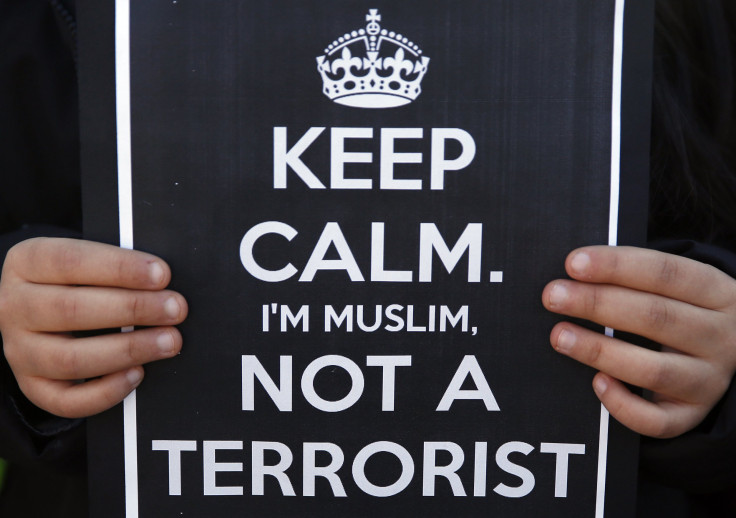War On Muslims: Burqa Bans, Hate Crimes And Laws That Ignore Cultural Norms Challenge Islam Around The World

In Morocco, officials banned the production and sale of full-face Muslim veils this week to bolster national security. In South Africa, a Cape Town mosque was attacked Tuesday when blood was found spattered on the walls and pulpit of Masjidul Jamiah in Kalk Bay. A pig snout was also left at the entrance of the mosque. Meanwhile, The European Court of Human Rights upheld Tuesday a decision from Swiss officials that required Muslim girls to swim alongside boys against their family's wishes, the New York Times reported.
The flurry of seemingly anti-Muslim developments come amid rising anti-Islamic sentiments in Europe and the United States, raising questions about the challenges and security concerns facing Muslims living in the Western world. In the United States, for example, anti-Muslim hate crimes soared by 67 percent, from 154 incidents in 2014 to 257 in 2015, according to the latest latest FBI annual hate crime report.
In Morocco, officials complained criminals were using the burqa garment to hide their identity while carrying out crimes in the majority Muslim nation. "Is Morocco moving towards banning the niqab that Muslim women have worn for five centuries?" Salafist sheikh Hassan Kettani wrote on Facebook. "If true it would be a disaster."
The ruling this week from European Court of Human Rights came after school officials in Basel ordered a Muslim couple in 2008 to force their daughters to take swim classes alongside boys. When the parents, who have both Swiss and Turkish nationality, refused, they were ordered to pay a fine of 1,400 Swiss francs, about $1,380. The parents sued, arguing that the policy violated the “freedom of thought, conscience and religion” guaranteed by the European Convention on Human Rights, which the court enforces.
Europe has particularly struggled to integrate migrants, with far-right political parties gaining support as their leaders demand that Muslim foreigners be ordered to follow more liberal cultural norms than they might be used to in their home countries. Meanwhile, the National Front in France, the Danish People’s Party in Denmark, the Swiss People’s Party in Switzerland and other conservative fractions have won over voters by slamming Islam.
In May, Swiss authorities ruled that two Syrian immigrant brothers could not refuse to shake their teacher’s hand because of their religious beliefs. In Denmark, the central Danish town of Randers sparked debate after it required public day care centers and kindergarten to include port meatballs and other pork dishes in their lunchrooms. In France, nearly 30 towns in the country’s southeast sought to ban burkinis over the summer. In Belgium, it's illegal to wear full veils in public. In Germany, Chancellor Angela Merkel said in December she would support a partial ban on burkas and niqabs.
“The full-face veil is not acceptable in our country,” she told crowds at a conference of her Christian Democratic Union party in Essen, Germany. “It should be banned, wherever it is legally possible. Our law takes precedence over codes of honor, tribal or family rules, and over Sharia law – that has to be spelled out clearly. This also means that it is important to show face when people communicate.”
© Copyright IBTimes 2024. All rights reserved.





















